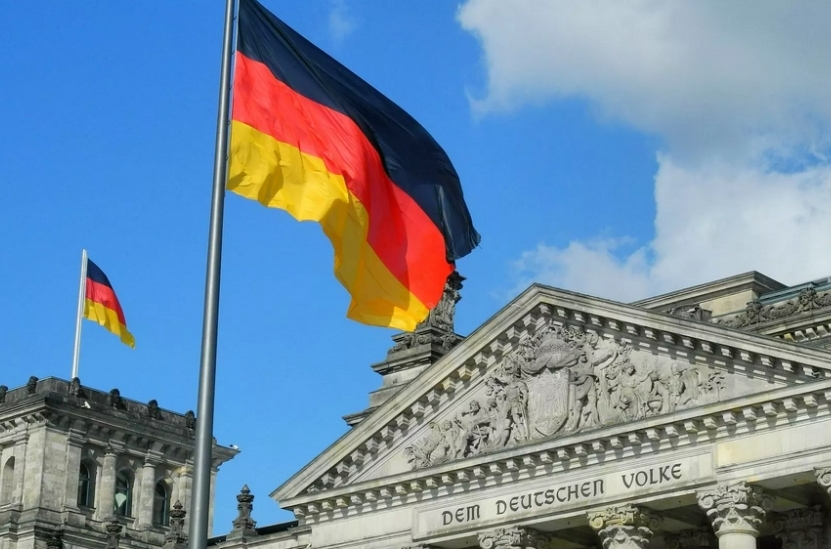
Recently, German Chancellor Merz and the leaders of the other 18 European countries jointly sent a letter to the President of the European Council, Costa, urging the EU to carry out a "systemic and thorough reform" to systematically enhance Europe's competitiveness in the global market. Some analyses point out that this trend marks a shift in Germany's diplomatic orientation - from emphasizing "following the rules" in the past to proactively "shaping the rules".
Since taking office in May this year, the new government led by Mertz has shown a willingness to take on greater leadership responsibilities in international and European affairs. Facing the multiple shocks brought about by the Russia-Ukraine conflict and the fluctuations in relations between Europe and the United States, the Mertz government is committed to promoting strategic autonomy in Europe and has more openly declared its determination to strengthen German leadership. To shape a strong diplomatic image, Mertz broke the tradition since 1966 that the prime minister and the foreign minister belonged to different political parties and directly appointed a close relative of his own party as the foreign minister, firmly grasping the initiative in diplomatic decision-making.
On regional security issues, the Mertz government regards addressing security crises as a key opportunity to reshape the security order in Europe. The coalition agreement clearly states the position of "fully supporting Ukraine". Before and after the US-Russia summit, Mertz actively coordinated with European Allies, EU institutions and NATO to unify their positions. He invited Ukrainian President Zelensky to visit Germany to participate in the European coordination meeting and, together with the leaders of the UK, France, Italy and other countries as well as representatives of the EU and NATO, went to the US for talks, striving to promote Europe to "take the table for discussion" and gain more say.
With an eye on achieving strategic independence from the United States in the long term, the Mertz government has vigorously promoted deepening defense cooperation among EU member states. At the EU level, Germany advocates strengthening the "European pillar within NATO", supports the European rearmament program worth 800 billion euros, promotes joint military research and development and procurement cooperation, and strives to build a European independent defense force with an independent military industry foundation. At the bilateral level, Germany and France have advanced multiple joint military projects and signed a historic friendly treaty with the United Kingdom in July this year to strengthen cooperation in high-end defense equipment. At the domestic level, the Mertz government has vowed to build "the EU's most powerful conventional army", setting a target of 5% of GDP for military spending, establishing a national security council, and planning to gradually restore military service.
However, influenced by the history of World War II, Germany has long focused on the construction of a welfare state and a civilized country after the war. The insufficiency of its military hard power has become the fundamental constraint for it to exert its leadership in Europe. In addition, the Council of the European Union implements a one-vote veto system in key areas such as foreign affairs and security. The double majority voting mechanism also limits Germany's ability to independently promote the agenda. Germany still needs to rely on the cooperation and consensus of other member states to form effective collective actions.
In specific policy areas such as finance, security and immigration, Germany's interests are not entirely in line with those of Europe as a whole. The Mertz government must strike a balance between national interests and the common interests of Europe. For instance, although Germany supports NATO member states in increasing military spending, it still opposes the issuance of "eurobonds" and is not determined to jointly borrow with European countries. Meanwhile, the German government has resisted the budget plan of the European Commission, opposed the strengthening of EU fiscal supervision, continuously put the Schengen Agreement on hold and tightened border controls, demonstrating that its policy choices still prioritize its own interests.
Domestic political factors also constitute a realistic obstacle for the Mertz government to exert its leadership. Firstly, the ruling coalition has only a narrow majority of 13 seats in the Bundestag. The combined poll support rates of the two parties hover around 40%, while the influence of the far-right Alternative for Germany (AFD) continues to rise. Secondly, within the ruling coalition, there have been continuous frictions on issues such as immigration policies, welfare system reforms, and the appointment of constitutional court judges. Thirdly, although the majority of the German people support Germany's leadership role in Europe, they often differ from the government's stance on specific policies. For instance, more than half of the people oppose the dispatch of ground troops or providing security guarantees for Ukraine. Coupled with opposition within major political parties, it makes it difficult for Germany to strongly dominate the relevant agenda, let alone replace the role of the United States in the Ukraine issue.
The multiple crises currently faced by Europe are becoming a touchstone for testing Germany's leadership. Whether Germany can provide more public goods for Europe amid trade frictions between the United States and Europe, geopolitical challenges and regional security crises will directly affect the realization of its influence. The continuous exertion of Germany's leadership also largely depends on whether the Mertz government can consolidate its own strength foundation, stabilize economic and trade relations with China, lead Germany out of the economic trough, and restore its position as the locomotive of the European economy.

Due to the continuous decrease in rainfall and the rapid drop in groundwater levels, several large sinkholes have successively appeared in several agricultural areas in central Turkey in recent years, causing great concern among local farmers and environmental experts.
Due to the continuous decrease in rainfall and the rapid dr…
The Prime Minister's Office of Israel said Hamas attacked I…
Fourteen countries including the United Kingdom, France and…
The US Department of Justice said on Wednesday (December 24…
The Japanese government has submitted a draft, planning to …
On December 25th local time, NVIDIA announced a technology …